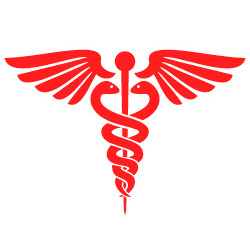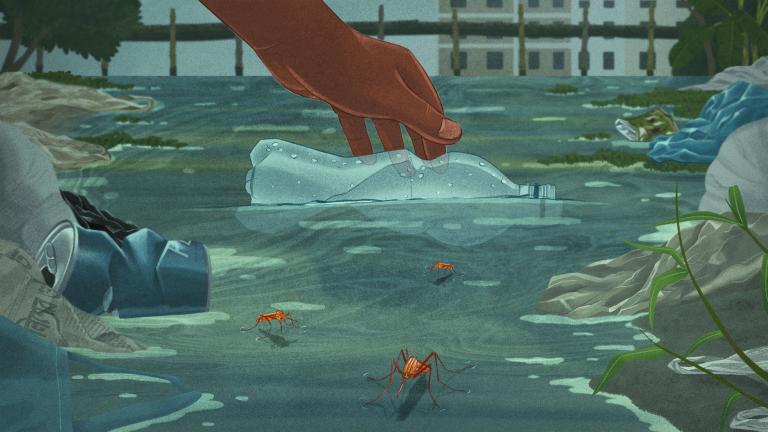We asked some influential thinkers and doers what they make of the Supreme Court’s health-care ruling and its potential impact on sustainability, democracy, and America. See what they have to say below. (This is our second batch of responses; check out the first.)
 Van Jones, president and cofounder of Rebuild the Dream
Van Jones, president and cofounder of Rebuild the Dream
When we put our minimum against our opponents’ maximum, we lose — that’s Wisconsin. When we put our maximum against their maximum, we win — that’s health care.
If anybody thinks that the Supreme Court was immune to the full-out offensive on their legitimacy, they’re not paying attention. Justice Roberts could see the Supreme Court used to be the most highly estimated institution in American life and it is now chasing Congress down the sewer pipe. This ruling was 100 percent a response to the American people’s disgust with the blatantly partisan role that the Supreme Court was taking on, making the Roberts Supreme Court synonymous with pure, crass politics. But that didn’t come out of the clear blue sky; people put up a big fight about what kind of Supreme Court this is.
It’s become very fashionable to be cynical, to say politics doesn’t matter, that it all sucks. But then look at the people who say that: When we lose in Wisconsin, they’re depressed. When we win in the Supreme Court, they’re happy. So maybe this stuff does matter a little bit after all. And since we’re going to be happy or sad as the result of the outcomes, maybe we should do a little bit more than we’ve been doing the last couple years.
 Gary Hirshberg, cofounder and chair of Stonyfield
Gary Hirshberg, cofounder and chair of Stonyfield
I am relieved and in fact a bit shocked that this Court validated the Obama administration’s contention that the Affordable Care Act is constitutional. I’m relieved because America is getting sicker and this law ensures that middle-class families will get the security they deserve and protects every American from the worst insurance-company abuses. I am shocked because this Court has five members who I feel have been very activist and partisan in support of American corporate overreach and I felt sure they would side with the insurance companies in trying to undo something that clearly benefits average citizens over the health-care providers.
To be clear, “Obamacare” only starts to address the deeply broken state of Americans’ health and wellness. Whether through skyrocketing obesity, diabetes, or cancer rates, it is clear that our modern food system is making us sicker, and we need to understand that aside from the moral and ethical tragedies, these trends are both devastating to our economy and completely preventable. While what we really need is comprehensive preventative-care policy that rewards reduced sugar consumption, increased exercise, and elimination of chemicals and additives in our foods, agriculture, and environment, the Affordable Care Act at least starts to catch us up with the kinds of care and protections that any civilized nation ought to provide its citizens.
 Samhita Mukhopadhyay, executive editor of Feministing
Samhita Mukhopadhyay, executive editor of Feministing
A general lack of education around the specifics of the Affordable Care Act allowed untrue rumors about exactly who this act would help to flourish. Many thought we were on a slippery slope to Sweden (imagine that!), but the reality is much different. The Supreme Court took a stand today in favor of a plan that will ensure our elderly have access, those under 26 can stay on their parents’ insurance, women of all incomes will get access to preventative, gyn, and maternal care, and those of us who are uninsured will have access to affordable care. These are just a few ways this plan will make people’s lives better. That’s not radical — that’s responsible!
The fact that affordable health insurance is such a partisan issue today is appalling — the very fabric of a society should prioritize the health of its citizenry, and any politician who doesn’t stand for that isn’t focused on the well-being of the people of the nation.
The decision is a small victory for the idea that equity, foresight, and prosperity are symbiotic. Our interdependence means that if we want a prosperous nation, we need to think ahead and think about everyone. The same, it turns out, is true for the other species who coinhabit our planet and on whom we depend. In the end, it’s all one big community on one small rock. Perhaps PlanetCare can come next?
[UPDATE, 6/29/12: Here’s one more:]
 Michel Nischan, president and CEO of Wholesome Wave
Michel Nischan, president and CEO of Wholesome Wave
Now that the Supreme Court has upheld the Affordable Care Act, we can very much look forward to Liberty, Justice and Well-Being for all, rather than Expensive Medicine for all. By affirming the constitutionality of the healthcare reform law, the highest court in the land has protected vitally important health and wellness provisions in the legislation that sets the stage for America to once again become one of the healthiest nations on earth. These provisions are designed to keep Americans from developing preventable diseases such as heart disease or type 2 diabetes — diseases linked to unhealthy eating, something often unavoidable for people living in poverty.


 Alex Steffen
Alex Steffen

